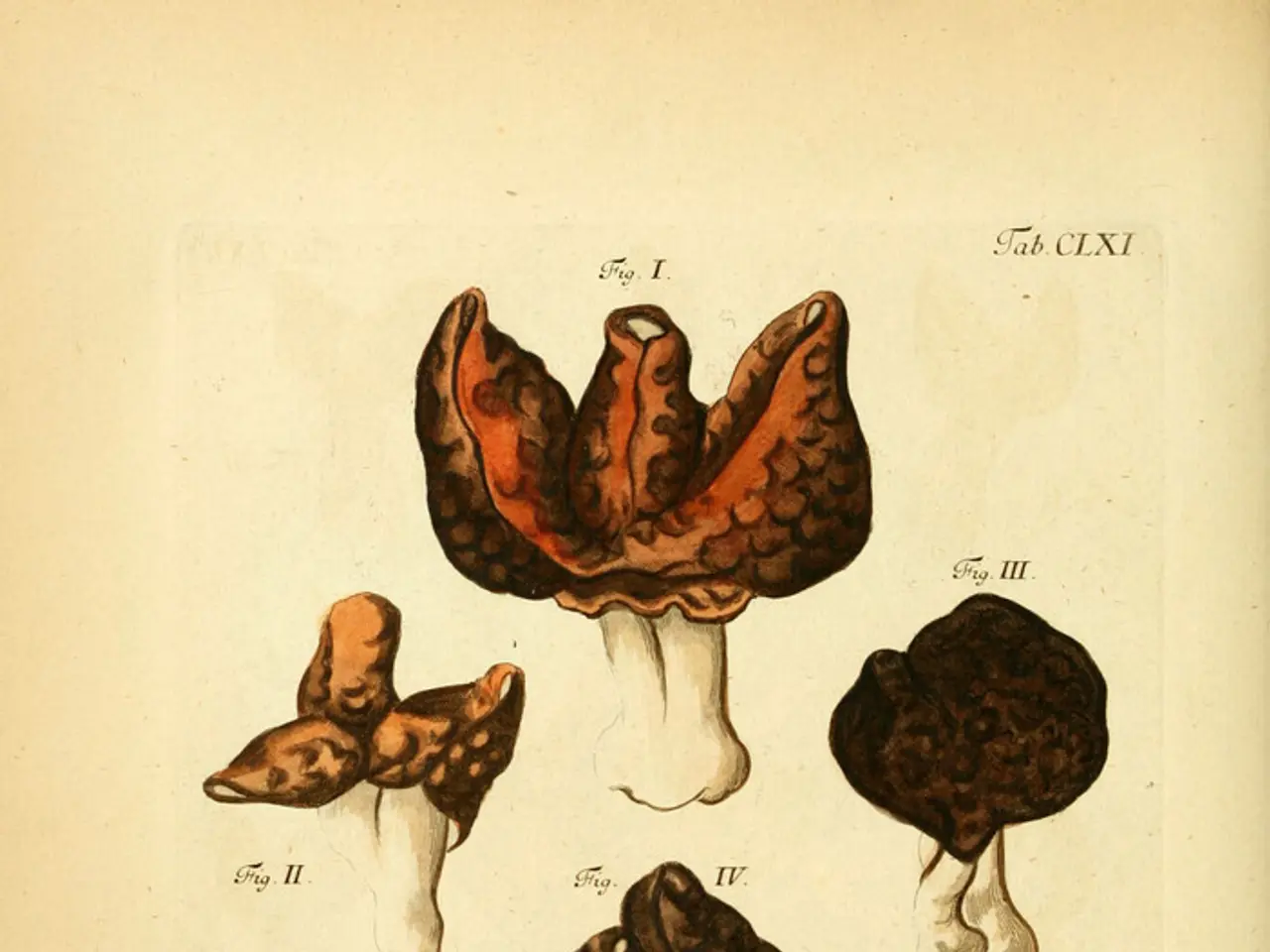Alert Issued by Rospotrebnadzor Regarding Potential Botulism outbreak in the City
In the home-preserving season, a reminder has been issued by the Yakutia branch of Rospotrebnadzor about the risk of botulism. Botulism, a rare but potentially deadly foodborne illness, can lead to respiratory failure and death if left untreated.
The initial symptoms of botulism resemble gastrointestinal distress, including weakness, diarrhea, nausea, and abdominal pain. However, later symptoms can be more severe, including double vision, blurred vision, dry throat, hoarse voice, and difficulty speaking. The incubation period for botulism typically ranges from 8 hours to two days.
To prevent botulism, it's essential to follow the best practices for safely preserving mushrooms. These practices focus on thorough cleaning, proper sterilization, and using preservation methods that eliminate or inhibit bacterial growth, especially Clostridium botulinum.
Key Safety Steps
- Clean and trim mushrooms carefully. Brush off dirt without soaking them in water, as excess moisture can promote spoilage and bacterial growth.
- Use heat sterilization. Methods such as boiling, pressure canning, or dehydrating at high temperatures can kill harmful microorganisms, including botulinum spores. Heat sterilization is critical because botulism toxin forms in anaerobic (oxygen-free), low-acid environments like improperly canned mushrooms.
- Avoid chemical sterilization. Methods such as bleach or vinegar washes for preservation can alter flavor and do not reliably prevent botulism.
- Prefer safe preservation methods. Pressure canning (not just boiling water canning) for mushrooms is recommended, as only pressure canning reaches the high temperatures needed to destroy botulism spores. Dehydrating and freeze-drying also help by removing moisture, making the environment unsuitable for botulism bacteria.
- Store dried mushrooms properly. Keep them dry and airtight in airtight containers like mason jars or vacuum-sealed bags to prevent moisture ingress that could encourage bacterial growth.
- Avoid preserving mushrooms in low-acid, anaerobic conditions at home without proper pressure canning equipment. Botulism risk is high in sealed, moist, low-acid foods.
In summary, preventing botulism involves thoroughly cleaning mushrooms, using pressure canning or high-temperature drying methods to sterilize them, and storing them dry and airtight. Avoid low-acid, anaerobic preservation without pressure canning, as this can support botulinum toxin formation and cause food poisoning.
Remember, spoiled jars of preserved food should be discarded to prevent the risk of botulism. Thorough cooking, boiling, or frying of all food products and canned goods before serving is the main preventive measure for botulism. Delayed medical help and late treatment for botulism can lead to death from respiratory failure.
Stay safe and enjoy your preserved mushrooms!
[1] FoodSafety.gov. (n.d.). Botulism. Retrieved from https://www.foodsafety.gov/poisoning/causes/bacterial/botulism/
[2] National Center for Home Food Preservation. (n.d.). Mushrooms. Retrieved from https://nchfp.uga.edu/how/can_03/mushrooms.html
[3] National Center for Home Food Preservation. (n.d.). Dehydrating Mushrooms. Retrieved from https://nchfp.uga.edu/how/freeze/mushrooms.html
[4] National Center for Home Food Preservation. (n.d.). Home Canning Basics. Retrieved from https://nchfp.uga.edu/how/can_01/basics.html
- Scientific studies highlight the importance of adhering to sterilization techniques, such as heat, pressure canning, or dehydration, in the realm of health-and-wellness to prevent the growth of harmful bacteria like Clostridium botulinum, a cause of botulism, in food-and-drink items like mushrooms.
- To maintain a balanced lifestyle and promote overall health through proper nutrition, it's equally critical to stay informed about general-news related to food safety, such as the risk of botulism associated with home-preserving practices like canning mushrooms without adequate sterilization.
- In light of recent health-and-wellness investigations, it's essential for Home-preserving enthusiasts to abide by key safety steps—like dry storage and proper sterilization—to minimize the risk of botulism, a rare yet potentially fatal health complication linked to improper food preservation.




